samedi, 02 décembre 2017
The Alt Right Among Other Rights
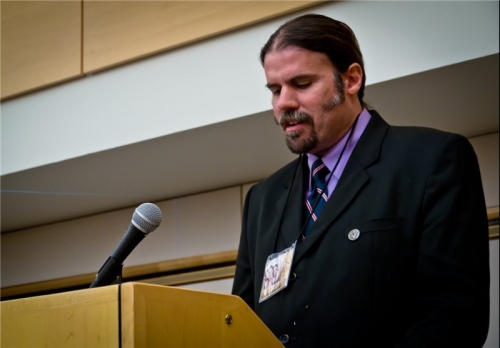
The Alt Right Among Other Rights
This is the text of a lecture I gave to the H.L. Mencken Club on November 4, 2017.
By Keith Preston
Ex: https://www.attackthesystem.com
Speaking about the intricacies of different ideological tendencies can often be a bit tedious, and certainly a topic like the Alt-Right can get very complicated because there are so many currents that feed into the Alt-Right. I know that when I spoke here last year I was speaking on the right-wing anarchist tradition, which is a highly esoteric tradition, and one that is often very obscure with many undercurrents. The Alt-Right is similar in the sense of having many sub-tendencies that are fairly obscure in their own way, although some of these have become more familiar now that the Alt-Right has grown in fame, or infamy, in the eyes of its opponents. Some of the speakers we have heard at this conference so far have helped to clarify some of the potential definitions of what the Alt-Right actually is, but given the subject of my presentation I thought I might break it down a bit further, and clarify a few major distinctions.
What is the Alt-Right?
The Alt-Right can be broadly defined as a highly varied and loose collection of ideologies, movements, and tendencies that in some way dissent from the so-called “mainstream” conservative movement, or are in actual opposition to mainstream conservatism. Of course, this leaves us with the task of actually defining mainstream conservatism as well. I would define the conservative movement’s principal characteristics as being led by the neoconservatives, oriented towards the Republican Party, and as a movement for whom media outlets like Fox News, talk radio, and publications like National Review and the Weekly Standard are its leading voices. Outside of the framework of what some here appropriately call “Conservatism, Inc.,” we could say that there is an Alt-Right that can be broadly defined, and an Alt-Right that can be more narrowly defined.
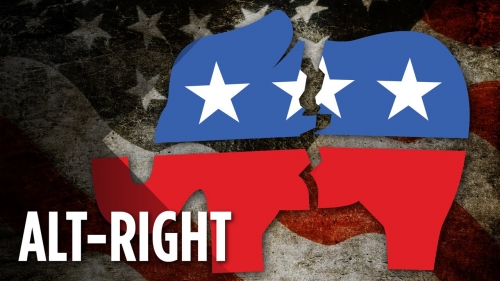
The Alt-Right broadly defined would be anything on the Right that is in opposition to the neocon-led Republican alliance. This could include everything from many Donald Trump voters in the mainstream, to various tendencies that have been given such labels as the “alt-lite,” the new right, the radical right, the populist right, the dark enlightenment, the identitarians, the neo-reactionaries, the manosphere (or “men’s right advocates”), civic nationalists, economic nationalists, Southern nationalists, white nationalists, paleoconservatives, right-wing anarchists, right-leaning libertarians (or “paleolibertarians”), right-wing socialists, neo-monarchists, tendencies among Catholic or Eastern Orthodox traditionalists, neo-pagans, Satanists, adherents of the European New Right, Duginists, Eurasianists, National-Bolsheviks, conspiracy theorists, and, of course, actually self-identified Fascists and National Socialists. I have encountered all of these perspectives and others in Alt-Right circles.
Under this broad definition of the Alt-Right, anyone from Steve Bannon or Milo Yiannopolis all the way over to The Daily Sturmer or the Traditionalist Workers Party could be considered Alt-Right. In fact, ideological tendencies as diverse as these have actually embraced the Alt-Right label to describe themselves. For example, Steve Bannon said at one point during the Trump campaign in 2016 that he wanted to make Breitbart into the voice of the Alt-Right, but then I have also encountered people who are actual neo-Nazis using the Alt-Right label to describe themselves as well.
A narrower definition of the Alt-Right might be to characterize what is most distinctive about the Alt-Right. In this sense, the Alt-Right could be characterized as a collection of tendencies that is specifically oriented towards some of kind identification with European history and tradition, and regard Europe and, by extension, North America as part of a distinct Western civilization that was developed by European and, predominantly, Christian peoples. Consequently, the Alt-Right tends to be much more oriented towards criticizing ideas or policies like multiculturalism, mass immigration, and what is commonly called “political correctness,” than what is found among mainstream conservatism. This is in contrast to the Left’s views, which are increasingly the views of mainstream liberalism as well, and which regards the legacy of Western history and culture as nothing but an infinite string of oppressions such racism, sexism, homophobia, classism, anti-Semitism, Islamophobia, xenophobia, patriarchy, hierarchy, nativism, cisgenderism, speciesism, and the usual laundry list of isms, archies, and phobias that the Left sees as permeating every aspect of Western civilization. Presumably, other civilizations have never featured any of these characteristics.
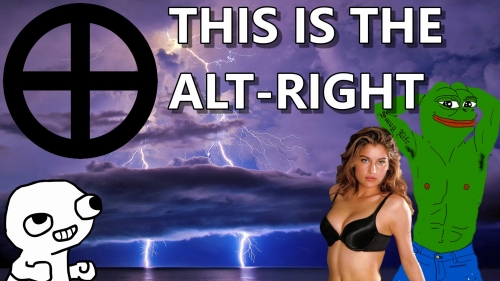
In this way, the Alt-Right is obviously in contrast to mainstream conservatism given that the so-called “conservative movement” is normally oriented towards what amounts to three basic ideas. One idea is that of the foreign policy “hawks,” or advocates of military interventionism for the ostensible purpose of spreading the Western model of liberal democracy throughout the world, whose greatest fear is isolationism in foreign policy, and which is a perspective that I would argue is also very convenient for the armaments manufacturers and the Pentagon budget. A second idea is a fixation on economic policy, such as a persistent advocacy of “tax cuts and deregulation,” which in reality amounts to merely advancing the business interests of the corporate class. And the third idea is a type of social conservatism that is primarily religion-driven, and has opposition to abortion or gay marriage as central issues of concern, but typically gives no thought to cultural or civilizational issues in any broader or historical sense. For example, it is now common in much of the evangelical Protestant milieu, as well as the Catholic milieu, to welcome mass immigration, as a source of potential converts, or as replacement members for churches that are losing their congregations due to the ongoing secularization of the wider society. In fact, the practice of adopting Third World children has become increasingly common within the evangelical Protestant subculture in the same way it has among celebrities and entertainers like Madonna or Angelina Jolie.
Predictably, there has been a great deal of conflict that has emerged between the Alt-Right and the mainstream conservative movement, with many movement conservatives and their fellow travelers going out of their way to attack or denounce the Alt-Right. In this sense, the attacks on the Alt-Right that have originated from mainstream conservatism essentially mirror those of the Left, or of the liberal class. For example, the Associated Press issued a description of the Alt-Right that was intended for writers’ guideline policy purposes, and which reads as follows:
The ‘alt-right’ or ‘alternative right’ is a name currently embraced by some white supremacists and white nationalists to refer to themselves and their ideology, which emphasizes preserving and protecting the white race in the United States in addition to, or over, other traditional conservative positions such as limited government, low taxes and strict law-and-order. The movement has been described as a mix of racism, white nationalism and populism … criticizes “multiculturalism” and more rights for non-whites, women, Jews, Muslims, gays, immigrants and other minorities. Its members reject the American democratic ideal that all should have equality under the law regardless of creed, gender, ethnic origin or race (John Daniszewski, Associated Press, November 26, 2016)
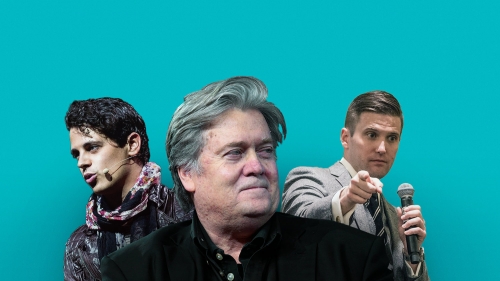
While the above quotation is from the Associated Press, I do not know that there is anything in it that could not have come from the pages of not only The New Yorker, The Atlantic, or the Southern Poverty Law Center’s Intelligence Report, but also from the pages of the National Review, Weekly Standard, the Federalist, or a Prager University video.
As for some specific examples, writing in The Federalist, conservative political scientist Nathanael Blake stated that “Christianity and Greco-Roman philosophy, rather than race, are the foundations upon which Western Civilization was built,” and suggested that the Alt-Right is actually attacking the legacy of Western Civilization rather than defending the Western cultural heritage. These questions have become a major point of contention between cultural conservatives and the racialist right-wing. Writing in National Review, David French (Bill Kristol’s one-time proposed presidential candidate), called Alt-Right adherents “wanna-be fascists” and denounced “their entry into the national political conversation.” I suppose the difference between the views of David French and the views of the Left would be that the Left would say that the Alt-Right are actual fascists, and not merely “wanna-be” fascists. Presumably, this is what separates the mainstream Right from the Left nowadays.
Writing for The Weekly Standard, Benjamin Welton has characterized the Alt-Right as a “highly heterogeneous force” that “turns the left’s moralism on its head and makes it a badge of honor to be called ‘racist,’ ‘homophobic,’ and ‘sexist'”. Based on my own experiences with the Alt-Right, I would say this assessment by Welton is largely true. In the National Review issue of April, 2016, Ian Tuttle wrote:
The Alt-Right has evangelized over the last several months primarily via a racist and anti-Semitic online presence. But for Allum Bokhari and Milo Yiannopoulos, the Alt-Right consists of fun-loving provocateurs, valiant defenders of Western civilization, daring intellectuals—and a handful of neo-Nazis keen on a Final Solution 2.0, but there are only a few of them, and nobody likes them anyways.
Jeffrey Tucker, a libertarian writer affiliated with the Foundation for Economic Education, describes the Alt-Right as follows:
The Alt-Right “inherits a long and dreary tradition of thought from Friedrich Hegel to Thomas Carlyle to Oswald Spengler to Madison Grant to Othmar Spann to Giovanni Gentile to Trump’s speeches.” Tucker further asserts that Alt-Right adherents “look back to what they imagine to be a golden age when elites ruled and peons obeyed” and consider that “identity is everything and the loss of identity is the greatest crime against self anyone can imagine.”
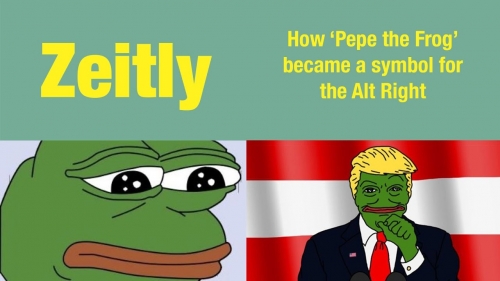
Whatever one thinks of the Trump presidency, it is highly doubtful that Trump actually draws inspiration from Hegel.
Writing in The Federalist, a libertarian feminist named Cathy Young criticized a Radix Journal article on abortion that criticized the pro-life position as “‘dysgenic,” because it supposedly “encourages breeding by ‘the least intelligent and responsible’ women.” So apparently, it is not enough to simply favor abortion rights. Instead, one has to be “pro-choice” for what are apparently the “right reasons,” such as a “woman’s right to choose,” as opposed to “bad reasons,” such as eugenic practice. This line of thought is in keeping with the fairly standard leftist viewpoint which insists that motives and intentions rather than ideas and consequences are what matters, and the standard by which people ought to be morally judged.
Another interesting aspect of these criticisms is that the mainstream conservatives have attacked the Alt-Right by using leftist terminology, such as labeling the Alt-Right as racist, sexist, fascist, xenophobic, etc. But a parallel tactic that has been used by mainstream conservatism has been to denounce the Alt-Right as leftist. For example, at this year’s gathering of CPAC, or the Conservative Political Action committee, Dan Schneider, who is currently the executive director of the American Conservative Union, an organization that hosts the annual CPAC conference, criticized the Alt-Right as “a sinister organization that is trying to worm its way into our ranks,” insisting that, quote, “We must not be duped. We must not be deceived,” and said of the Alt-Right:
“They are nothing but garden-variety left-wing fascists..They are anti-Semites; they are racists; they are sexists. They hate the Constitution. They hate free markets. They hate pluralism. They despise everything we believe in.”
This sounds very similar to the rhetoric that often comes from the far left where dire warnings are issued concerning the supposed threat of fascist entryism into leftist organizations. For example, there is term called the “the fascist creep” that is used by some very far Left antifa and Maoist tendencies to describe what are supposedly ongoing nefarious plots by “fascists” to infiltrate and co-opt leftist movements, and steer these towards fascism. Ironically, this conspiracy theory is very similar to traditional anti-Semitic conspiracy theories about how Jews supposedly infiltrate and take over everything, and manipulate institutions in order to advance all sorts of supposed nefarious plots. It would appear that the far Left, and apparently increasingly mainstream conservatism, has developed its own rhetoric about the “fascist conspiracy” as a counterpart to far Right fantasies about the “Jewish conspiracy.” Perhaps we could characterize the former as the “Protocols of the Learned Elders of Thule.”

Jeff Goldstein, writing in The Federalist on September 6, 2016, suggests that, quote, “the Alt-Right is the mirror image of the New Left,” and describes the Alt-Right “an identity movement on par with Black Lives Matter, La Raza, the Council on American-Islamic Relations, and other products of cultural Marxism.” Goldstein further says of the Alt-Right:
The Alt-Right is a European-style right-wing movement that is at odds with the classical liberalism upon which our country was built, and which the Left has redefined as “Right.” That is to say, the European “Right” is mapped onto a political spectrum different than our own. Our “right” — conservatism or classical liberalism —is dead-center on our spectrum, no matter how persistently the Left tries to claim otherwise. It is constitutionalism, which incorporates federalism, republicanism, legal equity, and a separation of powers.
These comments are fairly representative of the rhetoric used by mainstream conservatives who attempt to either portray the Alt-Right as leftists, or label the Alt-Right as fascists and then claim fascism is really on the Left. The general argument that is made by mainstream conservatives in response to the Alt-Right is that “true” conservatism or the “true” Right is actually veneration for the Enlightenment-influenced ideas found in the Declaration of Independence, veneration of the Founding Fathers, and reverence for the Constitution as a kind of secular Bible. Parallel to these claims is the idea of America as a “propositional nation” that has no roots in any kind of history, culture, or tradition other than just a very vaguely defined “Judeo-Christianity.” This idea of what “conservatism” supposedly is basically amounts to being for so-called “limited government,” so-called “free enterprise,” “individualism,” and various other vaguely defined abstractions, plus policy preferences like a so-called “strong national defense” (which is often just a euphemism for the neoconservatives’ foreign policy agenda), and various center-right policy prescriptions like tax cuts, opposing Obamacare, opposing affirmative action, opposing gun control, opposing abortion, opposing gay marriage, supporting school vouchers, and other ideas we are all familiar with.
These policy preferences will often be accompanied by silly platitudes like “Democrats are the real racists,” or dubious and often flagrantly false claims like “Martin Luther King was a conservative,” or that foreign policy hawks are the real friends of feminists and gays because of their opposition to so-called “Islamo-fascism.” At times, Democrats will be labeled as fascists and anti-Semites because of their supposed pro-Islamic views, or because some on the far Left are pro-Palestinian. Taken to extremes, there are characters like Dinesh D’Souza who would probably claim that the Democrats crucified Jesus.
The representatives of “Conservatism, Inc.” will also give lip service to opposition to attacks on free speech and academic freedom in the name of political correctness, but they are very selective about this. For example, their defense of the politically incorrect does not extend to anti-Zionists like Norman Finkelstein. On the immigration issue, while there are some mainstream conservatives that are immigration restrictionists, it is just as common that the proposed method of reducing illegal immigration advanced by mainstream conservatives is to make legal immigration easier, on the assumption that the only problem with illegal immigration is its illegality. A defining characteristic of mainstream conservatism when contrasted with the Alt-Right is the total lack of seriousness, or any kind of solid philosophical or intellectual foundation that is displayed by mainstream conservatism.
The Alt-Right is more of a meta-political movement than a political one, and the specific policy proposals that are found among Alt-Rightists vary enormously. I do not know that it would even be possible to draft a platform for an Alt-Right political party because the Alt-Right contains so much diversity of ideas. However, the Alt-Right is far more serious about ideas than mainstream conservatism in the sense of having an understanding of the reality of demographic conflict, recognizing the difficulties that are associated with rapid demographic change, understanding the reality of class conflict as well as cultural and civilizational conflicts, understanding that Western liberal democracy is particular to the cultural foundations and historical circumstances of the West, and not something that can be easily transplanted elsewhere, and concerns that mainstream conservatives normally have no perception of, or do not take seriously.

I will end my presentation by pointing to an observation by Professor George Hawley of the University of Alabama, who suggested that the Alt-Right may pose a greater threat to progressivism than the mainstream conservative movement. I would agree that this is true, but only in the sense that the mainstream conservative movement poses no threat to progressivism at all. I would argue that far from being a threat to the Democratic Party, mainstream media, the corporate class and the cultural elite, the mainstream conservative movement is actually partners in crime with the progressives. The Alt-Right at least proposes ideas that are an ideological threat to progressivism even if this small size prevents the Alt-Right from being a political threat, at least at the present time.
19:23 Publié dans Actualité, Politique, Théorie politique | Lien permanent | Commentaires (0) | Tags : keith preston, alt right, états-unis, droite américaine, droite alternative américaine, actualité, politique, théorie politique, politologie, sciences politiques, philosophie politique |  |
|  del.icio.us |
del.icio.us |  |
|  Digg |
Digg | ![]() Facebook
Facebook
Multiculturalism and the Politics of Guilt: Towards a Secular Theocracy Reply
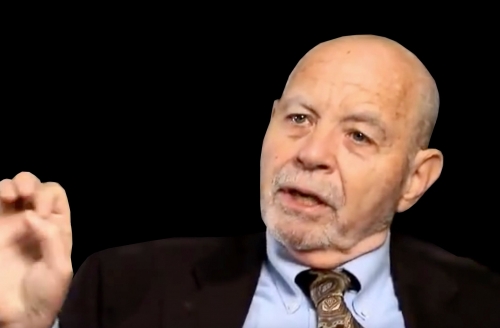
Multiculturalism and the Politics of Guilt: Towards a Secular Theocracy Reply
by Keith Preston
Ex: https://attackthesystem.com
A classic from Paul Gottfried and one of the definitive works criticizing totalitarian humanism. Available at Amazon. The important point for anarchists and libertarians is that totalitarian humanists are not amoral, libertine, hedonists as their critics often claim. Instead, they are fanatical moral puritants (“secular theocrats”). They oppose religious fundamentalists, nativists, racists, reactionaries, right-wing authoritarians, etc not because they are pro-freedom but because they want to replace these with authoritarian state-centric moralisms of their own. Many anarchists and libertarians have trouble understanding this, because they sympathize with the rhetorical values of the totalitarian humanists. Most anarchists and libertarians are not religious conservatives, racists, nativists, etc (though some are). But many anarchists and libertarians do sympathize with leftist causes like anti-racism, anti-sexism, gay liberation, environmentalism, etc, and consequently remained blinkered regarding totalitarian humanism.
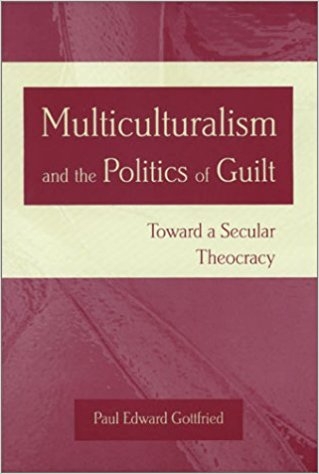 Multiculturalism and the Politics of Guilt extends Paul Gottfried’s examination of Western managerial government’s growth in the last third of the twentieth century. Linking multiculturalism to a distinctive political and religious context, the book argues that welfare-state democracy, unlike bourgeois liberalism, has rejected the once conventional distinction between government and civil society. Gottfried argues that the West’s relentless celebrations of diversity have resulted in the downgrading of the once dominant Western culture. The moral rationale of government has become the consciousness-raising of a presumed majority population. While welfare states continue to provide entitlements and fulfill the other material programs of older welfare regimes, they have ceased to make qualitative leaps in the direction of social democracy. For the new political elite, nationalization and income redistributions have become less significant than controlling the speech and thought of democratic citizens. An escalating hostility toward the bourgeois Christian past, explicit or at least implicit in the policies undertaken by the West and urged by the media, is characteristic of what Gottfried labels an emerging “therapeutic” state. For Gottfried, acceptance of an intrusive political correctness has transformed the religious consciousness of Western, particularly Protestant, society. The casting of “true” Christianity as a religion of sensitivity only toward victims has created a precondition for extensive social engineering.
Multiculturalism and the Politics of Guilt extends Paul Gottfried’s examination of Western managerial government’s growth in the last third of the twentieth century. Linking multiculturalism to a distinctive political and religious context, the book argues that welfare-state democracy, unlike bourgeois liberalism, has rejected the once conventional distinction between government and civil society. Gottfried argues that the West’s relentless celebrations of diversity have resulted in the downgrading of the once dominant Western culture. The moral rationale of government has become the consciousness-raising of a presumed majority population. While welfare states continue to provide entitlements and fulfill the other material programs of older welfare regimes, they have ceased to make qualitative leaps in the direction of social democracy. For the new political elite, nationalization and income redistributions have become less significant than controlling the speech and thought of democratic citizens. An escalating hostility toward the bourgeois Christian past, explicit or at least implicit in the policies undertaken by the West and urged by the media, is characteristic of what Gottfried labels an emerging “therapeutic” state. For Gottfried, acceptance of an intrusive political correctness has transformed the religious consciousness of Western, particularly Protestant, society. The casting of “true” Christianity as a religion of sensitivity only toward victims has created a precondition for extensive social engineering.
Gottfried examines late-twentieth-century liberal Christianity as the promoter of the politics of guilt. Metaphysical guilt has been transformed into self-abasement in relation to the “suffering just” identified with racial, cultural, and lifestyle minorities, Unlike earlier proponents of religious liberalism, the therapeutic statists oppose anything, including empirical knowledge, that impedes the expression of social and cultural guilt in an effort to raise the self-esteem of designated victims. Equally troubling to Gottfried is the growth of an American empire that is influencing European values and fashions. Europeans have begun, he says, to embrace the multicultural movement that originated with American liberal Protestantism’s emphasis on diversity as essential for democracy. He sees Europeans bringing authoritarian zeal to enforcing ideas and behavior imported from the United States. Multiculturalism and the Politics of Guilt extends the arguments of the author’s earlier After Liberalism. Whether one challenges or supports Gottfried’s conclusions, all will profit from a careful reading of this latest diagnosis of the American condition.
18:52 Publié dans Actualité, Philosophie, Théorie politique | Lien permanent | Commentaires (0) | Tags : paul gottfried, culpabilité, multiculturalisme, philosophie, philosophie politique, théorie politique, politologie, sciences politiques |  |
|  del.icio.us |
del.icio.us |  |
|  Digg |
Digg | ![]() Facebook
Facebook
Le Baa’sisme de Michel Aflak: un nationalisme et un socialisme arabe
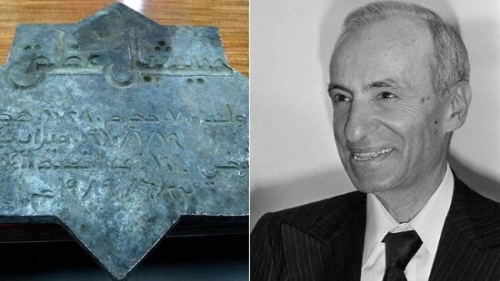
Le terme de Baa’th désigne une résurrection, au sens, du reste, chrétien ou platonicien, de l’animation de la part divine incorruptible, triomphant de la mort, et qui a été reçu et cultivé, chez le fondateur du mouvement portant ce nom, Michel Aflak, par son étude de la philosophie européenne. Cet homme fut, en effet, formé en France où il décéda, à l’hôpital militaire du Val de Grace. Sa jeunesse étudiante se passa à la Sorbonne, où il prit ses grades avant d’enseigner, jusqu’à sa démission en 1942, les lettres au lycée damascène alors régi par l’administration française qui s’était avec l’anglaise octroyée un mandat, pour servir, en bref, de paravent protecteur à la ruche sioniste qui avait contribué décisivement, par l’entrée en guerre des USA préparée par elle, à leur victoire en 1918 sur les forces impériales d’Europe Centrale alliées à l’Empire ottoman. On sent dans les propos de cet homme qui sut se débarrasser du marxisme ambiant pour se nourrir d’auteurs spiritualistes comme Henri Bergson (18 octobre 1859- 4 janvier 1941), juif parisien, de père juif polonais et de mère juive anglaise, converti au catholicisme, au moment d’entrer à l’Académie Française, et très sévère (ce dont témoigne une déclaration de 1921) envers les siens (et dont les funérailles hivernales virent la troupe allemande présenter les armes au passage du cortège), auquel il emprunte l’expression d’élan vital, son immatérialisme, et naturellement, outre les auteurs classiques allemands comme Hegel (1770-1831), l’enseignement du professeur grenoblois de la Sorbonne, le personnaliste catholique, mort à 44 ans, Emmanuel Mounier.
Le Personnalisme d’Emmanuel Mounier influença Michel Aflak et Ngo Din Diem
Emmanuel Mounier dont le nom est effacé aujourd’hui, au profit d’idéologues aux mœurs douteuses, abrutis par la psychanalyse destructrice et un structuralisme offrant une pensée sans sujet, rejetant, par dégoût naturel, l’idéal grec de la philosophie, inspira aussi un autre dirigeant nationaliste catholique, pro-japonais durant la seconde guerre mondiale et mort assassiné par les soins de l’ambassadeur US Cabod Lodge, à Saïgon, le regretté Président du Viêt-Nam nationaliste Ngo Din Diem (3 janvier 1901-23 novembre 1963) , patriote éprouvé, anticommuniste qui avait compris la collusion des deux blocs s’entendant pour étouffer toute spiritualité et enracinement naturel ou national. Ce mouvement nommé personnalisme entendait dépasser l’égoïsme individuel et diviseur et l’anonymat de la masse passive par ce que les « latins » désignaient par persona du verbe per-sonare, per-sonne, ce qui résonne ou sonne à travers l’homme physique et soulève l’intellect froid, forme la personne. Cette culture de la personne s’opposait au matérialisme marxiste et au libéralisme. C’était ce qu’un philosophe allemand de langue française, au XVIIe siècle, le baron de Leibniz entendait en latin par une « vis interna », une force interne, nous dirions intime et qui élève l’homme. La société ou la foi politique était ce qui permet à l’individu de sortir de soi pour devenir un principe de liberté collective, ce que disait le concept chrétien du sacrifice. Platon et Aristote n’enseignaient pas autre chose : les théologiens musulmans, de même, platonisaient ! Et cette teinture du christianisme actif, qui n’est plus une manière de mendier son salut, comme ironisait Schopenhauer, mais de le conquérir, selon une métaphore militaire, a donc inspiré la vision par Michel Aflak et ses camarades de combat, de l’essence de la nation arabe, et plus particulièrement de l’action ou de la valeur pratique du Prophète de l’Islam, Mahomet.
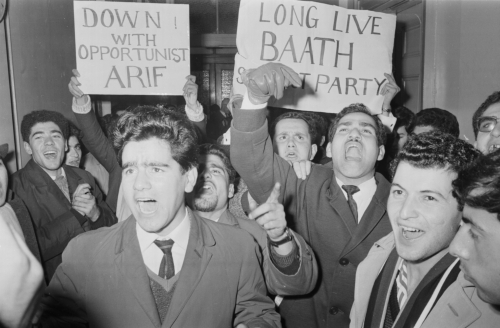
Mahomet fruit de la nation arabe
Ce fut, avait déjà dit Goethe dans la pièce de vers qu’il lui consacre, l’homme de l’enthousiasme contagieux, dont l’âme arabe fut illuminée : et ce qu’il importe de savoir, et qu’ Aflak a retiré de la philosophie allemande qui est le cœur battant de la pensée européenne, que la pensée ou la foi, l’action morale et politique se développent dans le berceau du langage ou au sein de la nation entendue comme un fait naturel, une âme, une création divine. En un mot, que la langue pense ! À cet égard il s’éloigne des maçons islamisés ou Frères Musulmans qui font de l’islamisme une universalité abstraite convenant à tous ceux qui veulent y souscrire, comme à une assurance, ou un self service de grande surface, où chacun se sert à condition de passer payer à la caisse, de satisfaire à des obligations. Cette robotisation proche du marxisme bolcheviste fut refusée par le baa’thisme, d’où la coalition hétéroclite permanente contre lui, des communistes aux libéraux, bref tous ceux tenant l’homme pour une machine à tuer, produire ou donner du plaisir, à voter ou payer un crédit : l’homme de l’usure !
Sur ce point financier que nous évoquons, le programme du parti baa’ th fut de proscrire l’usure (Riba). Et de fait, l’économie baa’ thiste syrienne, à la veille de la coalition contre elle, n’avait pas donné une partie de sa chair au Shylock de la finance. Les comptes étaient en règle, chose insupportable à l’usure internationale, « aux prêteurs du dehors », pour reprendre une expression du Président De Gaulle en 1964.
Il faut lire, chez Michel Aflak qui ne se convertira que tard à l’Islam, proche de la mort, exilé en Irak, ce portrait spiritualiste et national socialiste de Mahomet, homme de la nation. Il s’agit d’une conférence tenue à l’université, le 5 avril 1943 :
« La vie du prophète, qui incarne l’âme arabe dans sa vérité absolue [le terme est typiquement hégélien, de réconciliation du sujet de l’objet dans une synthèse supérieure ], ne peut être appréhendée par l’intellect [lequel, l’enseignait Hegel (1770-1831), est diviseur]. Pour la connaître, il faut en faire l’expérience vivante. C’est pourquoi, il est impossible que cette connaissance soit un point de départ. Elle constitue un aboutissement. Depuis que leur vitalité s’est émoussée, c’est-à-dire depuis des siècles, les Arabes lisent la biographie de Mohammed et se plaisent à la chanter sans la comprendre. Car cette compréhension exige un degré extrême de bouillonnement de l’âme, une profondeur et une sincérité de sentiments qu’ils ne possèdent pas encore, et une attitude existentielle plaçant l’homme face à son destin. Or, ils sont on ne peut plus loin de cet état. »
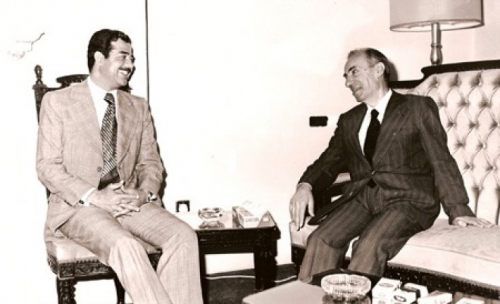
Michel Aflaq en conversation avec Saddam Hussein
Une pensée de l’héroïsme
Il y a un écho lyrique de l’espagnol José Antonio, du roumain Codreanu, du bourguignon, comme il se voulait nommer, Léon Degrelle, de toutes les grandes figures du nationalisme de l’extrême pointe de l’Occident jusqu’en Extrême-Orient, dans cette flamme embrasant les âmes ! Âme vient du verbe « latin »: animer (d’où le circonflexe remplaçant le n), étant un ressort, une profondeur d’existence opposée à la superficialité. Elle peut habiter l’esprit ou, comme il est dit plus bas – ce qui est le progrès ou un processus de damnation -, le déserter, comme l’explique ce passage du discours de Michel Aflak. Ce fut une génération inspirée par un même génie :
« L’âme de nos héros nous a désertés depuis bien longtemps car l’héroïsme ne figure plus parmi les qualités courantes des Arabes. Il est à craindre que la glorification populaire du grand prophète ne soit l’expression de l’impéritie et de l’incapacité plutôt qu’une juste appréciation de la grandeur. Nous avons perdu la notion d’héroïsme, si bien que nous le considérons aujourd’hui avec effroi et ahurissement comme s’il appartenait à un autre monde. Or, la véritable glorification de l’héroïsme doit découler d’une participation effective et d’une juste appréciation résultant de l’expérience et de la souffrance. Seul celui qui aura été capable dans sa vie, ne fût-ce que d’un grain d’héroïsme, pourra apprécier le héros.
Jusqu’ici, nous avons toujours observé la vie du prophète de l’extérieur, comme on observerait une image merveilleuse destinée à l’admiration et à la sanctification. Mais nous devons commencer par la contempler de l’intérieur, afin de la revivre. Chaque Arabe aujourd’hui est capable de revivre la vie du prophète, ne fût-ce que dans la proportion d’un caillou par rapport à la montagne, d’une goutte d’eau par rapport à l’océan. Il est tout à fait normal qu’un homme, aussi grand soit-il, s’avère incapable d’accomplir une œuvre comparable à celle du prophète. Cependant, il n’est pas moins normal qu’une personne, aussi limitées que soient ses capacités, puisse être un modèle infiniment réduit de Mohammed, dès lors qu’elle appartient à une nation qui a rassemblé toutes ses forces pour produire Mohammed ou plus exactement puisqu’il appartient à la nation que Mohammed a rassemblé toutes ses forces pour l’engendrer. Jadis, la vie d’un seul homme a résumé la vie de toute sa nation; il faut qu’aujourd’hui toute la vie de cette nation, dans sa renaissance nouvelle, soit le déploiement de la vie de son grand homme. Autrefois, Mohammed a personnifié tous les Arabes; aujourd’hui tous les Arabes doivent incarner Mohammed. »

Le soutien à l’insurrection irakienne de Rachid Ali contre l’Angleterre en 1941
Cet événement fit rompre Aflak avec les marxistes ou leurs adversaires religieux corrompus par l’Angleterre qui méprisaient la nation arabe, en soutenant même ce sophisme répandu partout que ce fut Mahomet (pour user de la forme turque Mehmet) qui fit entrer l’Arabie dans l’Histoire, que sans ce miracle, elle n’était rien. Or à suivre l’histoire académique, il y eut plusieurs siècles avant lui deux Etat arabes, clients d’un client ou allié de Rome, l’autre de la Perse ! Quoiqu’il en soit, la littérature arabe existait bien avant l’apparition de celui dont le nom est un éloge et non point, comme il faut le dire, un patronyme ! Ce fut la sensibilité de la nation arabe qui porta Mahomet, comme une matière donnant réalité à une forme ! Aflak connaissait le Discours à la Nation allemande du philosophe Fichte, bréviaire de tout nationalisme, au temps de l’occupation française… et maçonnique de l’Allemagne.
Il vit l’aide allemande apportée à ses camarades irakiens à partir des aérodromes français de Syrie, et il y a en effet près de Bagdad, un cimetière militaire où sont inhumés les aviateurs de la Luftwaffe morts pour la cause nationale arabe.
Les deux essais de « nation arabe unie »
Même si les éléments communistes – et en particulier le parti communiste syrien de Khaled Bagdache – essayeront de noyauter le Ba’ath syrien, celui-ci saura s’en défendre et c’est là qu’il faut faire raison des accusations de dictature portées par les gens de gauche contre la politique ba’thiste de guidance d’une société, sur un plan national, sans lutte de classes artificielles qui ne servent partout qu’à ruiner les bourgeoisies locales au profit d’éléments cosmopolites.
Une première union syro-égyptienne ne dura que quelques années, et la seconde incluant la Libye s’achèvera en 1977. Une tentative d’unir Libye et Tunisie approuvée par le Président Bourguiba et son ministre, que nous interrogeâmes en 1971, M. Masmoudi fut aussitôt abandonnée sous pression d’une certaine « communauté internationale » !
En s’attaquant depuis 2011 à la Syrie, l’on veut paralyser tout effort de solution nationale arabe centrée sur ses propres intérêts, et non pas dispersée dans des opérations anarchistes à visage ou masque intégriste. Or cet effort ne peut être que global ou répondre à une totalité. Cela n’a rien à voir avec quelque idée de Dieu ou des formalités religieuses, ou plutôt toute idée de la sorte qui ne repose pas sur la morale est elle même immorale, comme le philosophe Kant le faisait savoir sévèrement à un correspondant maçon membre des Illuminati !
Ce que Michel Aflak entend par être laïque
Pour un nationaliste, qui est d’abord conservateur des énergies, car la santé physique est en premier la conservation du corps et de son milieu naturel, la religion sort d’une terre et l’inspiration céleste est une graine tombée sur un champ. Que la politique consiste à tailler les arbres, à « cultiver son jardin », entretenir le sol, garder la propriété, et c’est ce que Aflak enseigna, en guide ou amid aux Musulmans et aux Chrétiens : les deux avaient un point commun, leur sensibilité nationale, qui avait en effet produit ces monastère syriaques, par exemple avec ses moines auquel il est fait allusion par le Prophète dans le noble Koran. L’islam en était un rejeton récent, le christianisme l’aîné, puisque, à suivre la tradition chrétienne, ce furent des Arabes chrétiens damascènes qui recueillirent et soignèrent le persécuteur pharisien des Chrétiens de Jérusalem, donc qui virent naître la sainteté de Paul aveugle et recouvrant la vue parmi eux.
Ce rappel a son importance, d’autant que c’est à Damas, d’après la tradition pieuse musulmane que doit se livrer le combat entre l’Antéchrist prenant le pouvoir mondial à Jérusalem « positivement et non pas métaphoriquement », selon le Père jésuite espagnol Suarez,(positive, non metaphorice) et ses deux adversaires, le Christ humain revenu sur terre et qui trouve enfin sa mort, et le Mahdi son allié qui, dernier Imam ou guide des croyants, terrasse l’Antéchrist et ses soutiens.
Etre laïque consiste à mener le combat politique national en tenant uni, redisons le terme, nationalement le peuple arabe, et ses confessions, et non pas à mépriser ou combattre celles-ci, pour ne pas affaiblir, si l’on peut dire, la mère du Prophète!
De fait, le mot laïque dérive du grec laos qui est le peuple sacré de la Tragédie – à la différence du démos, la masse -, et qui est tel, non parce qu’il croit aux dieux, mais parce qu’il existe par leur volonté et que ceux-ci habitent en son sein.
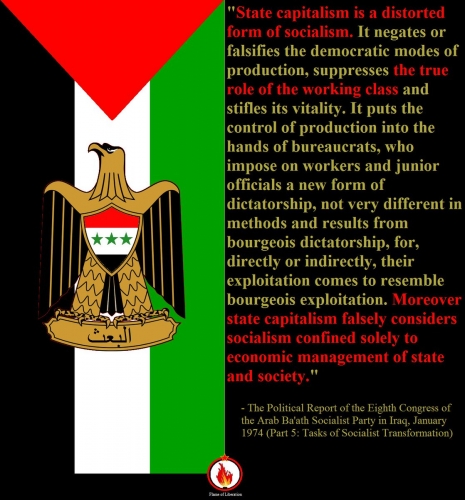
Le Prophète sort du peuple, et ne le saurait créer
Il est, du reste, une pensée coranique que chaque peuple a un Prophète que Dieu fait jaillir de lui, et l’histoire en fournit des exemples proches. Ceux ci sont des avertisseurs d’avoir à respecter la volonté de la Providence et de l’ordre naturel de la Création. Le pensez-vous ? C’est que vous êtes déjà un baa’thiste ou bassiste ! Les théologiens, comme les perroquets de la République des Oiseaux dans le conte de Voltaire, La Princesse de Babylone, réciteront ce qu’ils savent, Michel Aflak était philosophe, parlait avec éloquence de ce qu’il comprenait, et le résultat se fait sentir aujourd’hui que le peuple syrien, celui de la Grande Syrie comprenant le Liban et la Palestine ou Syrie Méridionale, a fait marquer le pas à l’Antéchrist aux multiples couronnes saoudiennes et républicaines !
Retenons le nom du leader syrien, de l’amid Aflak, dont la réputation grandira, avec les victoires du peuple syrien et de la Nation Arabe, la vraie, pas celle de la Ligue anglaise du même nom qui obéit au prince héritier d’Arabie anglaise, Salman, la vraie reine des lieux de cette Arabie factice étant à Buckingham !
L’Unité arabe : elle ne se réalisera que dans la douleur
S’il faut une preuve de la valeur des pensées et des directives d’action patriotique de Michel Aflak, nous la trouverions dans la faiblesse de la Ligue du même nom, la Ligue Arabe, qui est un organisme de soumission à l’Angleterre, patronne de la région, tout comme sa colonie américaine ! Cette Ligue Arabe impressionne par le nom, mais n’est qu’une addition de gouvernements qui ploient sous les dettes et ressemble à un corps sans épine dorsale. La Fraternité Musulmane, qui en est le versant terroriste avec des allures hypocrites (les Monaferins, dit-on en arabe) poursuit le même but : cultiver le séparatisme, l’opposition des ethnies entre elles, se recréant une histoire fictive et ne produisant des élites en tout domaine que pour émigrer et non pas se livrer au premier pas de tout sentiment religieux, artistique et seulement moral, qu’est le sentiment d’appartenance à la même origine.
Le Bath prit le pouvoir réellement avec Hafez el Assad, au terme d’une vingtaine d’années de plus de vingt coups d’Etat soudoyés par des intérêts divers, le plus puissant étant l’Arabie saoudite, siège d’un sectarisme forgé au XVIIIe siècle avec la complicité d’agents britanniques qui occupaient le site même de La Mecque. La suite en fut cette soi-disant « révolte arabe » conduite par l’agent Lawrence contre la communauté christiano-musulmane orientale.
Avec Hafez el Assad, une orientation claire fut donnée de travailler communément à la formation d’une patrie syrienne exemplaire, tout comme le fit l’Irak, de son côté. Néanmoins aucun Etat ne peut réussir sans une mobilisation totale, et même là, il se heurte à une coalition internationale, comme les deux guerres mondiales l’ont montré.
Sans Unité Arabe, point de santé du corps arabe, dont l’ambition de plusieurs est de se bercer au sein des sociétés occidentales, en reniant la valeur du sang échangé contre une monnaie dévaluable. C’est une antithèse de la volonté exprimée par le jeune chrétien de la Sorbonne et professeur au lycée français de Damas.
Mais aujourd’hui la victoire même inachevée de Bacher el Assad et la discipline de son armée, qui a surpris tous les projets de subversion, montrent que la passion et la douleur auront été la voie de la victoire, l’indication de la seule stabilité capable de vaincre l’occupation étrangère, qu’il sera bientôt interdit de dénoncer au pays des « loges », mais que chacun sait reconnaître, pour peu qu’il ait cet « instinct divin, immortelle et céleste voix » – eût dit Rousseau -, qu’est la conscience morale.
La victoire syrienne replace au premier rang le visage de Michel Aflak, que tout nationaliste doit apprécier.
Pierre Dortiguier
10:59 Publié dans Histoire, Théorie politique | Lien permanent | Commentaires (0) | Tags : histoire, théorie politique, politologie, sciences politiques, philosophie politique, irak, syrie, liban, levant, proche orient, moyen orient, baath, baathisme, michel aflak, michel aflaq, personnalisme chrétien, emmeanuel mounier, personnalisme, socialisme arabe, monde arabe, monde arabo-musulman |  |
|  del.icio.us |
del.icio.us |  |
|  Digg |
Digg | ![]() Facebook
Facebook


